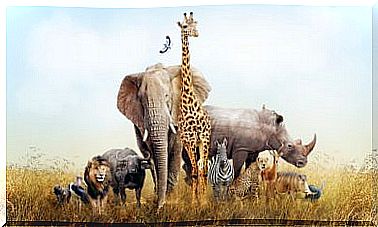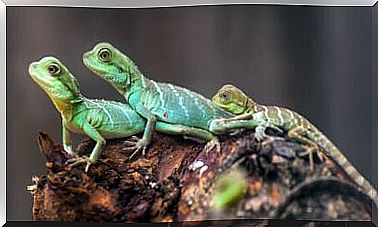Social Isolation In Wild Animals
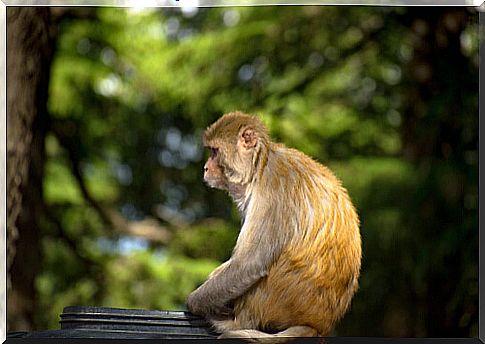
Isolation is something that animals cannot afford if they want to make their mark on subsequent generations.
Whether to compete for reproduction, to maximize herd survival, or for the sake of sharing, animals must continually interact. Even the loneliest – like many arachnids – have to socialize at least once in their life: They have to conquer a mate to give rise to offspring!
In these moments of confinement forced by the COVID-19 crisis, we will all be dealing with a certain degree of social isolation. This has various effects on both our mental and physiological state. Now, how does prolonged isolation affect wild animals?
Here are some studies that have tried to answer this question.
Not only mammals are affected by loneliness
Sociality is a characteristic that is usually attributed only to mammals. In fact, most people have images of various groups of primates deworming each other in their mind.
Although nesting and complex interactions are typical of warm-blooded animals, there are studies that break with many of these preconceptions ; such is the case of this one that was published in 2013.
In this study, a specific experiment was carried out: chameleons of the species Chamaeleo calyptratus were monitored . These were divided into groups of four, except for some specimens in total isolation, during their first two months of life. The results obtained will surprise you:
- Interactions during the first days of life were found to condition the way the animal behaves in its adult stage.
- The isolated chameleons showed different colorations from the grouped ones.
- The grouped animals were less submissive than the isolated ones to others of the same species.
- Isolated animals hunted insects less effectively than grouped ones.
These results make one thing clear: the probability of survival increases in social individuals. Although later the chameleon becomes a solitary being, common learning during the first months will condition its entire life.
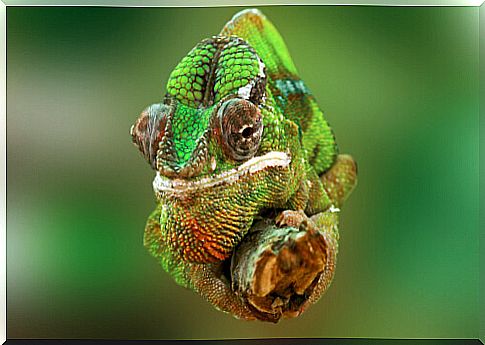
The company lengthens life and isolation shortens it
We all know the importance of the interaction between living beings, but we do not suspect to what extent it can be essential. This study carried out with the fruit fly Drosophila melanogaster showed that sociality lengthened the life of the flies.
Different colonies of flies with different parameters were housed and two groups were differentiated: “mutant” flies (genetically modified to live less) and normal “helper” flies. These were the observations:
- Mutant flies that lived with helpers increased their life expectancy considerably compared to isolated mutants.
- Mutant flies that had helpers increased their mobility dramatically compared to isolated mutants.
- Under stressful situations, mutant flies that socialized with helpers survived longer than isolated mutants.
Awesome, right? Not only did the mutant flies manage to increase their life expectancy by socializing with the normal ones, but they also became more resistant and agile.
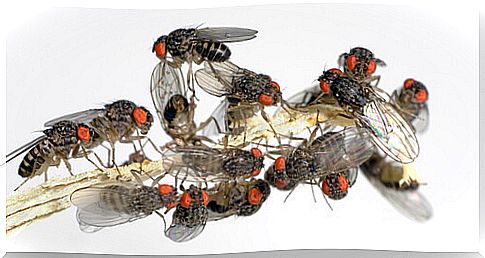
Isolation worsens mood
Loneliness doesn’t just affect physiological patterns. It also drastically changes humor in animals, as this latest study shows.
Macaque monkeys of different ages were isolated for long periods of time, and their reactions were monitored in comparison to others that were social for most of their lives:
- The isolated monkeys showed aggressive and stressful behaviors, while the accompanied monkeys hardly registered these emotions.
- Younger monkeys were more aggressive in isolation than older ones.
- Males were more aggressive in isolation than females.
Thus, this is proof that the lack of sociality increases aggressiveness and stress, especially in young males. The stimulation of the interaction is necessary for a correct development.
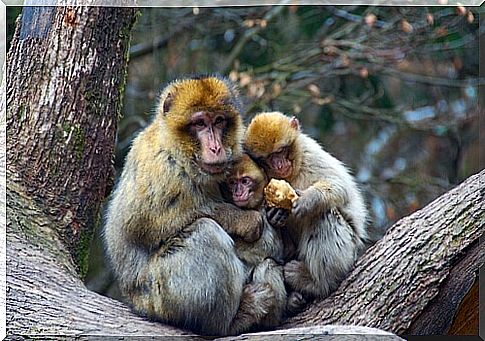
Ethical considerations and last notes
These studies provide essential information when it comes to understanding animal behavior. Still, one cannot ignore the inherent cruelty of isolating living beings for the purpose of learning.
For this reason it is necessary to make this point: in the European Union today it is expressly prohibited to use animals for this type of experiment unless it is essential.
Primates are an even more rigid exception, since their use for experiments is (almost) prohibited under any circumstances. For this reason, the last study cited dates from the year 1971.
These ethological experiments have allowed us to understand animal social dynamics with many benefits: knowing the optimal number of individuals for a zoo, social dynamics in nature reserves, and avoiding cruelty to companion animals.
The ethology of the past has allowed us to learn to treat animals well in the present.
One thing is clear: lack of sociality is not pleasant in humans or animals. For this reason, it is very important to take into account the social needs of our pets when deciding to acquire them and when living with them.


